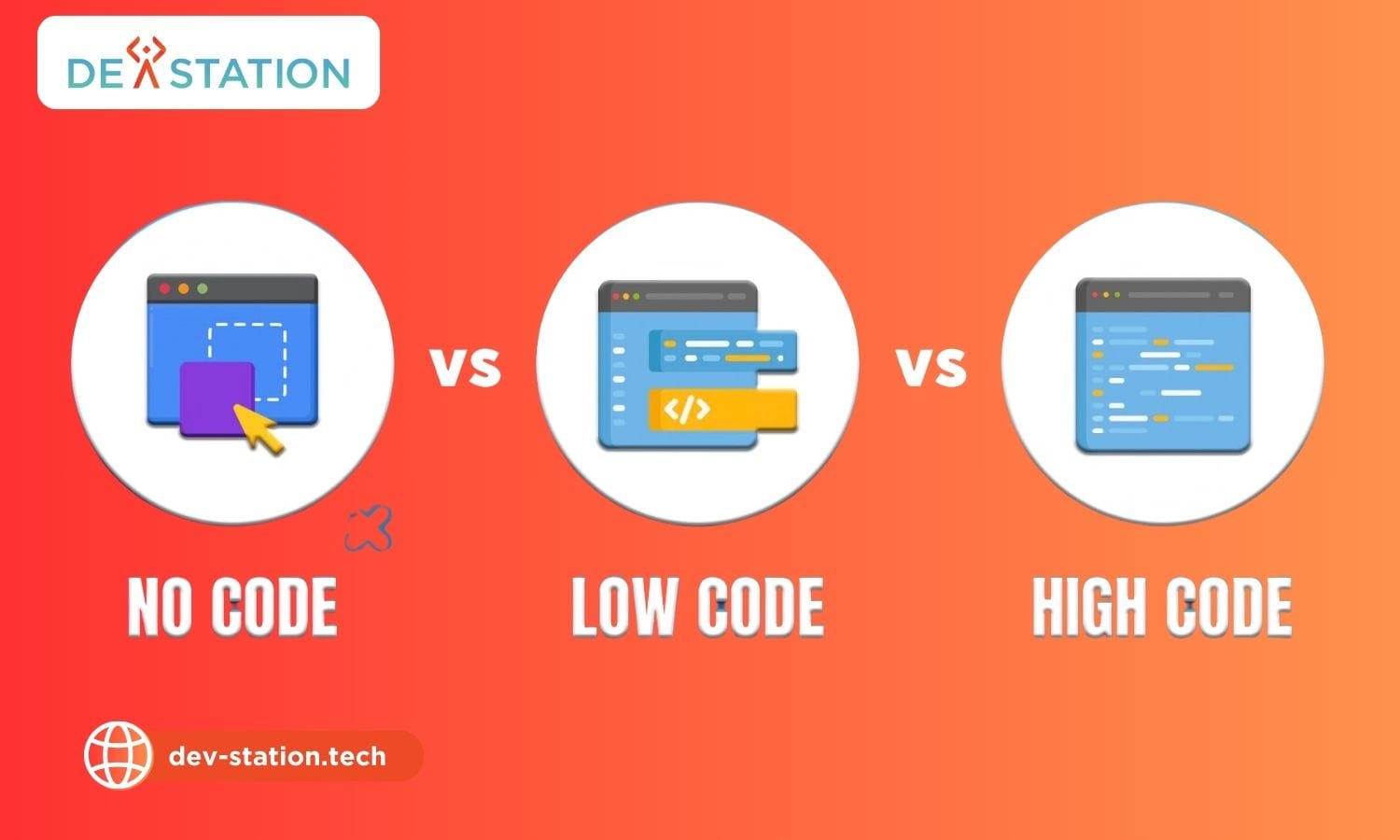The financial technology world is changing fast. Now, advanced algorithms and smart systems handle tasks like fraud detection and personalized banking. This change brings both chances and challenges for companies wanting to stay ahead.
Financial institutions face big hurdles when using new tech. First, resource limitations limit what in-house teams can do. Second, the specialized knowledge needed to create complex systems is hard to find. Third, keeping up with the fast pace of innovation is tough.
Machine learning is key for modern finance. It helps with better risk assessment, quicker transactions, and deeper customer insights. But, creating these systems needs a lot of expertise and money.
Many companies in the US, UK, and Australia have found a smart solution. They partner with tech experts to get advanced capabilities without the cost of building everything themselves. This lets financial businesses focus on what they do best while using outside tech know-how.
Contents
ToggleWhy Outsource AI?
Outsourcing AI gives fintech companies a big edge without the need to build everything themselves. The fast-changing financial tech world puts a lot of pressure on companies. They need to use advanced AI without spending too much or breaking rules.
Choosing to outsource AI means big savings. Building an AI team in-house costs a lot. A typical in-house AI team can cost upwards of $500,000 annually for salaries, benefits, and more. Plus, finding and keeping top talent is hard and expensive.
Outsourcing AI makes costs more flexible. It saves money by not having to pay for staff all the time. This is especially true when AI work is done in phases.
Cost Efficiency Through External Expertise
Outsourcing AI gives you a team of experts right away. They have experience from many industries. This helps avoid mistakes and speeds up work.
Outsourcing is also more predictable. In-house AI projects often go over budget. Outsourcing partners usually have fixed prices, making it easier to plan your budget.
“Organizations that strategically outsource AI development report an average cost reduction of 30-45% compared to equivalent in-house development efforts, while simultaneously reducing time-to-market by up to 60%.”
Outsourcing also means you get to use the expertise of others. This makes your AI projects better and faster. It also means you get more value from your investment.

Compliance Without Complexity
For fintech companies, following rules is a big challenge with AI. Rules like PCI DSS and GDPR are strict. They apply to AI that deals with financial and personal data.
AI outsourcing partners already follow these rules. This saves fintech companies a lot of time and money. They don’t have to start from scratch.
These partners also keep up with changing rules. They have teams dedicated to compliance. This lets your team focus on what they do best.
Accelerated Time-to-Market
In fintech, being fast is key. Building AI in-house takes 12-18 months. This includes finding talent, setting up infrastructure, and learning new tech.
Outsourcing is much faster. Partners can deliver AI solutions in 3-6 months. This gives fintech companies a big advantage in the market.
Being fast to market is very valuable. Every month you’re ahead means more money and market share. It’s a big opportunity that shouldn’t be missed.
| Development Approach | Average Time-to-Market | Initial Investment | Ongoing Costs | Compliance Burden |
|---|---|---|---|---|
| In-House AI Development | 12-18 months | $500,000+ | High (team maintenance) | High (internal responsibility) |
| Hybrid Approach | 6-12 months | $250,000-400,000 | Medium | Medium (shared responsibility) |
| Full AI Outsourcing | 3-6 months | $150,000-300,000 | Low (project-based) | Low (partner managed) |
Long-Term ROI Benefits
Outsourcing AI is not just about saving money. It also means making money faster. AI projects can start making money sooner. Outsourcing also means using less computer power, which saves money over time.
Outsourcing also helps avoid wasting time and money on projects that don’t work. This means your team can focus on what really matters. It also means your projects are better and faster.
Outsourcing lets fintech companies focus on what they do best. They don’t have to spend time and money on building AI teams. This is a big advantage that’s often overlooked.
When thinking about outsourcing AI, fintech leaders look at more than just costs. They also consider how it reduces risk, ensures compliance, and aligns with their strategy. These factors make a strong case for working with AI experts.
Key Benefits: Detail improved fraud detection, personalized services, regulatory compliance, case study teaser
Fintech companies gain big advantages by using outsourced AI. These benefits go beyond saving money. They improve how things work and make customers happier. Let’s look at the main benefits of AI outsourcing for fintech.
Enhanced Fraud Detection and Prevention
AI helps fintech fight fraud better than old methods. Old systems often miss new fraud tricks. AI’s advanced algorithms learn and spot patterns better.
AI checks many data points fast, catching fraud that humans might miss. It looks for odd spending, strange locations, and different devices. This helps stop fraud before it happens.
AI works fast, which is key in today’s quick money world. It can stop suspicious activity right away. This stops money loss before it starts.
| Fraud Detection Capability | Traditional Systems | AI-Powered Solutions | Improvement Factor |
|---|---|---|---|
| Detection Speed | Minutes to hours | Milliseconds to seconds | 100-1000x faster |
| False Positive Rate | 10-15% | 2-5% | 3x reduction |
| Pattern Recognition | Pre-defined rules only | Adaptive learning | Continuous improvement |
| New Threat Detection | Requires manual updates | Self-evolving capabilities | Proactive protection |
Hyper-Personalized Financial Services
Today, people want services that feel made just for them. AI in fintech makes this possible. It looks at how people spend, save, and invest to give them advice that fits.
AI creates detailed profiles of customers. These profiles help suggest products that match what customers want. This could be a credit card with rewards or an investment that fits their risk level.
AI can even guess what customers might need before they ask. For example, it might suggest a loan when a customer’s cash flow shows they need it. Or, it might suggest refinancing when the market is good for them.
This personal touch helps fintech companies stand out. They see happier customers, more people using their products, and stronger loyalty. This is because AI makes services feel more personal.
Streamlined Regulatory Compliance
The rules for financial services keep getting more complex. Keeping up with these rules is hard and can lead to mistakes. AI makes this easier by watching transactions and making sure they follow the rules.
AI can also quickly change when rules do. This is great for companies that work in many places with different rules. It helps them stay in line without needing to retrain staff a lot.
AI also makes reports for compliance easier. It can make the reports needed for rules with little help from people. This saves time and reduces the chance of mistakes that could get companies in trouble.
Case Study Preview: Measurable Results
A payment processing fintech worked with Dev Station to use AI for fraud and customer insights. After six months, they saw big improvements:
- 73% less fraud that got through
- 68% fewer false alarms about fraud
- 41% happier customers
- 29% more people bought more from them
- 52% less delay in following rules
These results show how AI can really help fintech. The full story of how they did it and how it’s going is available if you ask.
Balancing Technology and Business Value
The best AI in fintech is when tech meets clear goals. AI’s cool tech is only worth it if it helps the business. This could be saving money, making more, or making customers happier.
Using outside AI experts helps fintech companies. They get help with both the tech and how to use it to meet business goals. This means AI is used in a way that makes sense for financial services.
This smart use of AI means companies can invest in it with confidence. They know it will help their business grow and make money. This is key for fintech leaders who want to use AI to innovate and make a profit.

Challenges & Solutions in AI Outsourcing
AI outsourcing is changing fintech, but it comes with big challenges. It’s important to understand these issues and find good solutions. This way, we can make AI work well in finance.
Data Security Considerations
Data security is a big worry for fintech companies using AI. They deal with a lot of personal customer info, making them a target for hackers. This risk gets worse when they share data with others.
To solve this, fintech companies need to choose vendors who are serious about security. Look for partners with PCI DSS and GDPR compliance certifications. These show they follow strict data protection rules.
Good security includes:
- End-to-end data encryption during transit and storage
- Strict access control mechanisms with multi-factor authentication
- Regular security audits and penetration testing
- Clear data handling policies with defined retention periods
“In financial services, data security isn’t just about compliance—it’s about maintaining customer trust. The most successful AI outsourcing relationships begin with transparent security frameworks and continue with ongoing vigilance.”
Ensuring AI Model Accuracy
AI models can get worse over time, especially when the market changes. This is called “model drift.” It’s a big problem for fintech because it can affect money decisions.
To fix this, we need to test AI models a lot. Establish continuous monitoring systems to check how well they’re doing. Good AI outsourcing partners should offer:
- Iterative testing methodologies that validate model performance
- Regular retraining schedules to incorporate new data patterns
- Performance dashboards with real-time accuracy metrics
- Contingency protocols for addressing unexpected model behavior
Navigating Regulatory Complexities
Financial services face many rules that change a lot. Adding AI makes it even harder because of new rules on how AI makes decisions.
When using AI, fintech companies need to make sure their partners know the rules. This is especially true for the US, UK, and Australia, where rules are different.
Secure AI outsourcing means finding partners who know the rules. They should be able to:
- Demonstrate familiarity with market-specific financial regulations
- Build explainable AI models that satisfy regulatory scrutiny
- Maintain comprehensive documentation of model development and decisions
- Adapt quickly to evolving regulatory requirements
Good outsourcing partnerships tackle these problems early on. By focusing on data security, model accuracy, and rules from the start, fintech can use AI safely and creatively.
When looking for AI partners, these issues are key. The best partners will not just talk about these problems but show they can solve them.
Choosing a Partner
Finding the right AI outsourcing partner for fintech innovation is crucial. You need to check their specialized skills, compliance, and success stories. Financial institutions must choose vendors with deep knowledge of the financial sector.
When looking at AI outsourcing services, focus on those with fintech experience. Look for expertise in risk assessment, fraud detection, and predictive analytics. These skills help address financial challenges.
Compliance is key when picking an AI partner. Make sure they have certifications like SOC 2, ISO 27001, and PCI DSS. These show they care about keeping your financial data safe.
Also, check if the partner knows the regulatory rules for your markets. A good partner will explain how they follow laws like GDPR in Europe or the California Consumer Privacy Act in the US.
“The right AI outsourcing partner doesn’t just understand technology—they understand the regulatory landscape of financial services and build compliance into every solution from the ground up.”
Look at a vendor’s past successes. Ask for case studies that show real results from their AI projects. Look for metrics like fraud reduction or better customer engagement.
Client feedback is also important. Look for testimonials from companies like yours. This feedback can give you insights that formal documents might miss.
For companies worldwide, it’s important to have 24/7 support. Make sure the potential partner offers this, especially if you’re in the US, UK, or Australia. This support keeps your business running smoothly.
When talking to vendors, ask these questions:
- How do you handle model drift and ensure ongoing AI accuracy in financial applications?
- What processes do you have for data security and privacy specific to financial information?
- Can you demonstrate how your AI solutions have helped financial institutions maintain regulatory compliance?
- What is your approach to knowledge transfer and building internal capabilities within our team?
- How do you measure success in fintech AI implementations?
Watch out for these red flags:
- Inability to provide fintech-specific case studies or references
- Vague responses about compliance frameworks and certifications
- One-size-fits-all AI solutions without customization for financial services
- Limited support hours that don’t accommodate global operations
- Reluctance to discuss model transparency or explainability
The best AI outsourcing services partner is transparent. They should explain their methods, data needs, and how they ensure accuracy and compliance. This builds trust and helps with regulatory approvals.
Also, consider their approach to teaching you about AI. The best partners help you grow your team’s skills over time. This ensures your AI projects keep working well for years.
Dev Station is a great example of a partner. They have deep fintech AI knowledge, follow strict compliance rules, and have a good track record. They offer 24/7 support and are open about how they develop their AI solutions. This helps with both compliance and learning.
By carefully evaluating potential partners, you can find the right one. They should understand fintech’s challenges and opportunities. The right partner will help you innovate while keeping your business safe and compliant.
Dev Station’s Solutions
Dev Station offers AI tools for fintech companies to fight fraud, assess risks, and improve customer service. Our system uses advanced algorithms to turn financial data into useful insights. This helps financial institutions stay ahead in a fast-changing market.
Advanced Fraud Detection Systems
Financial fraud is getting smarter, and we need better ways to stop it. Our fraud detection uses pattern recognition algorithms to spot unusual transactions that might be scams.
Our system learns from each transaction. It uses both supervised and unsupervised machine learning. This way, it gets better at catching fraud while reducing false alarms.
A big digital payment company used our system and cut fraud losses by 42% in the first quarter. They also made it easier for people to make real payments.
Intelligent Risk Assessment Frameworks
Old credit scoring models don’t always show the full picture of someone’s finances. Our risk assessment combines traditional data with new sources. This gives a clearer view of risk.
Our AI looks at transaction history, payment habits, and social media to give detailed risk scores. This helps lenders make better choices and reach more people.
This means fintech lenders can grow their customer base without taking on more risk. One online lender saw a 28% increase in approved loans while keeping defaults low.
Customer Analytics for Personalized Financial Services
Knowing what customers want is key for financial services. Dev Station’s analytics use natural language and predictive models to give insights. This helps tailor services to each customer.
Our tools track customer feelings and spot when they might leave. They also help focus on the most valuable customers. This leads to better product suggestions for each person.
This approach lets banks offer services that really fit what customers need. A digital bank using our analytics saw a 35% boost in cross-selling in six months.
Industry-Specific Solutions
Dev Station knows each part of finance has its own challenges. That’s why we’ve made special AI tools for different areas:
| Industry Segment | Key AI Applications | Business Outcomes | Implementation Timeline |
|---|---|---|---|
| Digital Banking | Customer journey optimization, fraud prevention, chatbots | Reduced operational costs, improved customer satisfaction | 3-4 months |
| Payment Processing | Real-time fraud detection, transaction monitoring | Lower fraud losses, reduced false positives | 2-3 months |
| Insurance | Claims processing automation, risk assessment | Faster claims settlement, more accurate pricing | 4-6 months |
| Investment Services | Portfolio optimization, market sentiment analysis | Enhanced returns, better client retention | 3-5 months |
Technical Capabilities with Business Impact
Our AI solutions are impressive, but we measure success by how they help businesses. Dev Station’s tools deliver real results:
- Reduced Fraud Losses: Our machine learning adapts to new fraud methods, cutting losses by up to 45%.
- Improved Customer Retention: Predictive models spot at-risk customers early, helping retain them and boosting retention by 30%.
- Enhanced Regulatory Compliance: Our AI watches for suspicious activity, reducing manual checks by 60%.
- Accelerated Loan Processing: Automated checks speed up loan approvals, from days to minutes, without sacrificing quality.
For financial institutions facing tough competition, these tools are more than just improvements. They’re strategic advantages in a data-driven world.
Dev Station combines deep financial knowledge with cutting-edge AI. Our team includes data scientists with banking, insurance, and investment backgrounds. They get both the tech and business sides of financial analytics.
This focus on finance ensures our AI solutions tackle real challenges. The result is technology that adds real value while keeping security and compliance top-notch.





